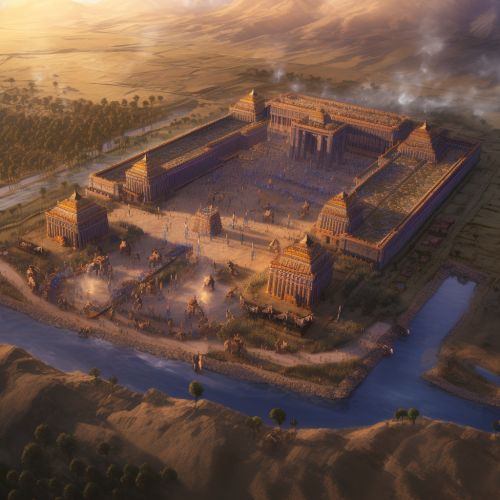History of Science in Early Civilizations
Origins of Science in Early Civilizations
The earliest civilizations, including those in Mesopotamia, Egypt, the Indus Valley, and China, made significant contributions to the development of scientific thought. These societies developed complex systems of mathematics, astronomy, and medicine, laying the groundwork for later scientific advancements.


Mesopotamia
In Mesopotamia, the Sumerian and Babylonian civilizations developed some of the earliest known forms of scientific thought. They created complex mathematical systems, including the sexagesimal (base-60) number system, which is still used in modern times for measuring time and angles. The Babylonians also made significant advancements in astronomy, creating detailed star catalogs and developing methods for predicting lunar and solar eclipses.
Egypt
In ancient Egypt, science was closely tied to religion and magic. However, the Egyptians made significant advancements in several scientific fields. They developed a decimal system and used complex mathematics to build their monumental pyramids and temples. They also made significant advancements in medicine, with the Edwin Smith Papyrus providing evidence of their knowledge of anatomy, injuries, and surgical procedures.
Indus Valley
The Indus Valley civilization, also known as the Harappan civilization, made significant contributions to the development of urban planning and architecture. They built well-planned cities with advanced drainage systems, showing a deep understanding of civil engineering. They also developed a system of weights and measures, indicating their knowledge of basic principles of physics.
China
In ancient China, the development of science was influenced by philosophical thought. The Chinese made significant advancements in astronomy, with the earliest known record of a solar eclipse dating back to 2137 BCE. They also developed complex systems of mathematics and made significant contributions to the field of medicine, with the Huangdi Neijing serving as one of the earliest comprehensive works on health and disease.
Development of Scientific Thought
The development of scientific thought in these early civilizations laid the groundwork for later advancements in science. These societies developed complex systems of mathematics, astronomy, and medicine, which were later built upon by the Greeks and Romans.


Mathematics
The development of mathematics in these early civilizations was crucial for the advancement of science. The Sumerians and Babylonians developed complex mathematical systems, including the sexagesimal number system. The Egyptians developed a decimal system and used complex mathematics in their architectural projects. The Indus Valley civilization developed a system of weights and measures, indicating their understanding of basic principles of physics.
Astronomy
Astronomy was another field where these early civilizations made significant advancements. The Babylonians created detailed star catalogs and developed methods for predicting lunar and solar eclipses. The Chinese also made significant advancements in astronomy, with the earliest known record of a solar eclipse dating back to 2137 BCE.
Medicine
Medicine was another field where these early civilizations made significant advancements. The Egyptians made significant progress in medicine, with the Edwin Smith Papyrus providing evidence of their knowledge of anatomy, injuries, and surgical procedures. The Chinese also made significant contributions to the field of medicine, with the Huangdi Neijing serving as one of the earliest comprehensive works on health and disease.
Impact on Later Civilizations
The scientific advancements made by these early civilizations had a profound impact on later societies. The Greeks and Romans, in particular, built upon the scientific knowledge of the Egyptians, Babylonians, and Chinese. The scientific thought developed in these early civilizations laid the groundwork for the scientific revolution in the Middle Ages and the development of modern science.


